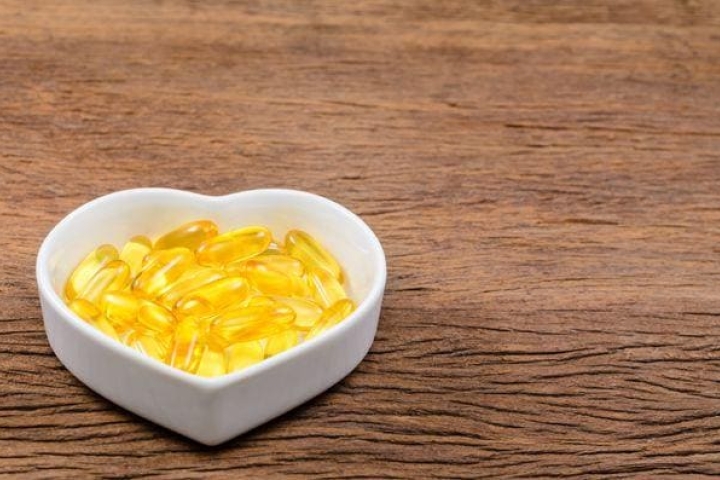What Is Niacin?
What is Niacin?
Niacin, also known as nicotinic acid or vitamin B3, is a water-soluble B vitamin that helps convert nutrients from food into energy via the formation of NAD and NADP. This organic compound can be found in certain foods and is absorbed by all tissues in the body.
Since this essential nutrient cannot be stored in the body, it is important to get adequate amounts of niacin through a healthy diet, though supplemental forms can also ensure that you’re getting the proper dose.
But what is niacin good for exactly?
Let’s get to know this heart-healthy vitamin and discover what makes it a vital nutrient for your cardiovascular system.
What Does Niacin Do for the Body?
One of the main functions of niacin in the body is to convert food into energy by aiding enzymatic processes. Niacin is a precursor for two coenzymes: Nicotinamide adenine dinucleotide (NAD) and nicotinamide adenine dinucleotide phosphate (NADP).
Absorbed niacin is converted to NAD to initiate catabolic reactions (the breakdown of larger molecules into smaller ones) like glycolysis. This process creates ATP, or usable energy. NAD can be further converted into NADP—a cofactor that uses energy to help synthesize molecules like cholesterol and fats.1
Niacin also supports cholesterol levels by promoting healthy cholesterol (HDL).2 Along with the potential to maintain healthy triglyceride levels, niacin can aid in supporting healthy blood pressure levels by helping to relax blood vessels.3,4
Benefits of Niacin
- Supports healthy cholesterol and blood-lipid levels
- Converts food into energy (cellular metabolism)
- Helps maintain healthy blood pressure
- Acts as an antioxidant and promotes DNA repair
- Nourishes skin health
Foods That Contain Niacin
- Liver such as beef and chicken
- Red meat like beef and pork
- Chicken breast
- Fish such as salmon and tuna
- Turkey breast
- Brown rice
Niacin Vs. Vitamin B
A common misconception is comparing niacin to vitamin B when, in fact, niacin is vitamin B—specifically, Vitamin B3. All B vitamins are responsible for converting food into energy, but niacin also plays a significant role in maintaining healthy cholesterol and blood pressure.
Furthermore, various derivatives of niacin, such as niacinamide found in supplement form, are beneficial for skincare routines, while another form, inositol hexanicotinate, is known for supporting circulatory function by widening blood vessels to improve blood flow.
While all forms of niacin are B vitamins, not all B vitamins offer the same benefits as niacin.
How Much Niacin Should You Take?
The daily recommended dose of niacin for adults is 16 mg.5
For food sources, some recommended amounts to reach the daily value are:
- Beef liver, 3 oz: 93% of the DV
- Beef, ground, 90% lean, 3 oz: 36% of the DV
- Pork, tenderloin, 3 oz: 39% of the DV
- Chicken breast, 3 oz: 64% of the DV
- Salmon, sockeye, 3 oz: 54% of the DV
- Tuna, light, canned in water and drained, 3 oz: 54% of the DV
- Turkey breast, meat only, 3 oz: 63% of the DV
- Rice, brown, 1 cup: 33% of the DV
Common Side Effects of Niacin
Some adverse effects of taking high dosages (30-50 mg of niacin) can lead to flushing, or a red color on the skin, accompanied by tingling, burning, and itching. More serious symptoms may include headaches, dizziness, and significant decreases in blood pressure.
Always consult your doctor before starting a new vitamin to ensure that it is safe and will not interact negatively with current medications.
Be well, now
BubbForest
*These statements have not been evaluated by the Food and Drug Administration. These products are not intended to diagnose, treat, cure, or prevent any disease.
Sources:
- NAD(H) and NADP(H) Redox Couples and Cellular Energy Metabolism. National Library of Medicine. Read More.
- Niacin and cholesterol: role in cardiovascular disease (review). The Journal of Nutritional Biochemistry. Read More.
- New Perspectives on the Use of Niacin in the Treatment of Lipid Disorders. Arch Intern Med. Read More.
- Does nicotinic acid (niacin) lower blood pressure? National Library of Medicine. Read More.
- Niacin Fact Sheet for Health Professionals. National Library of Medicine. Read More.





Leave a comment